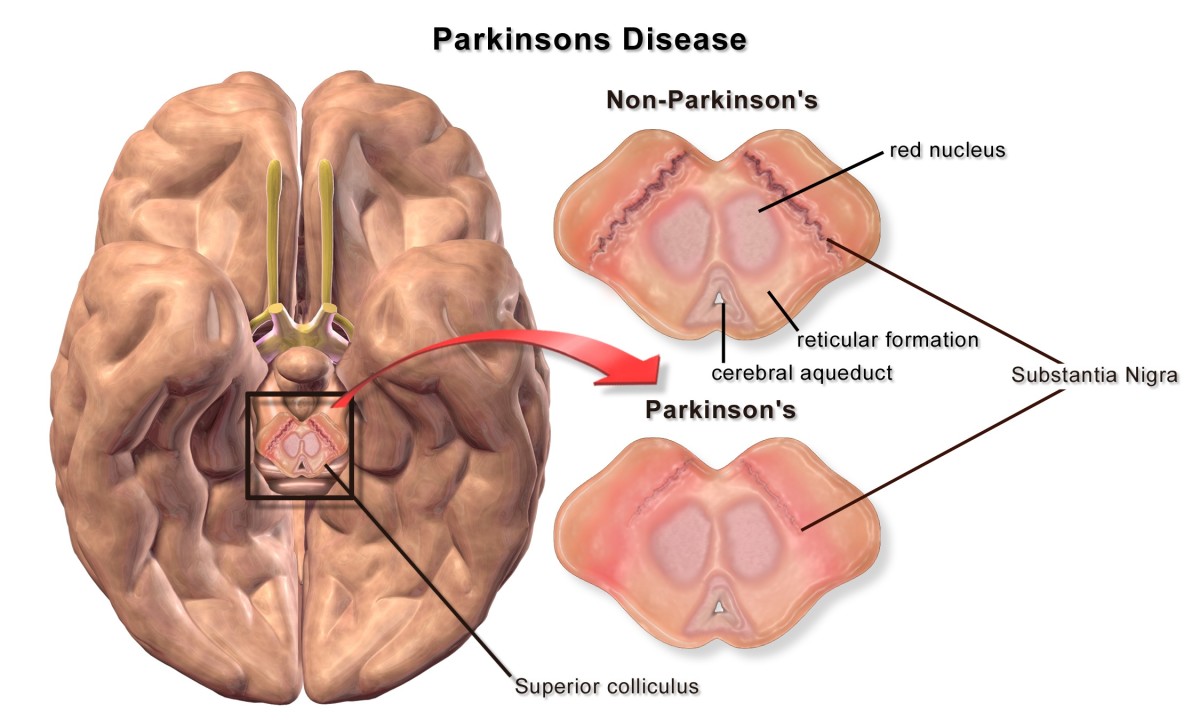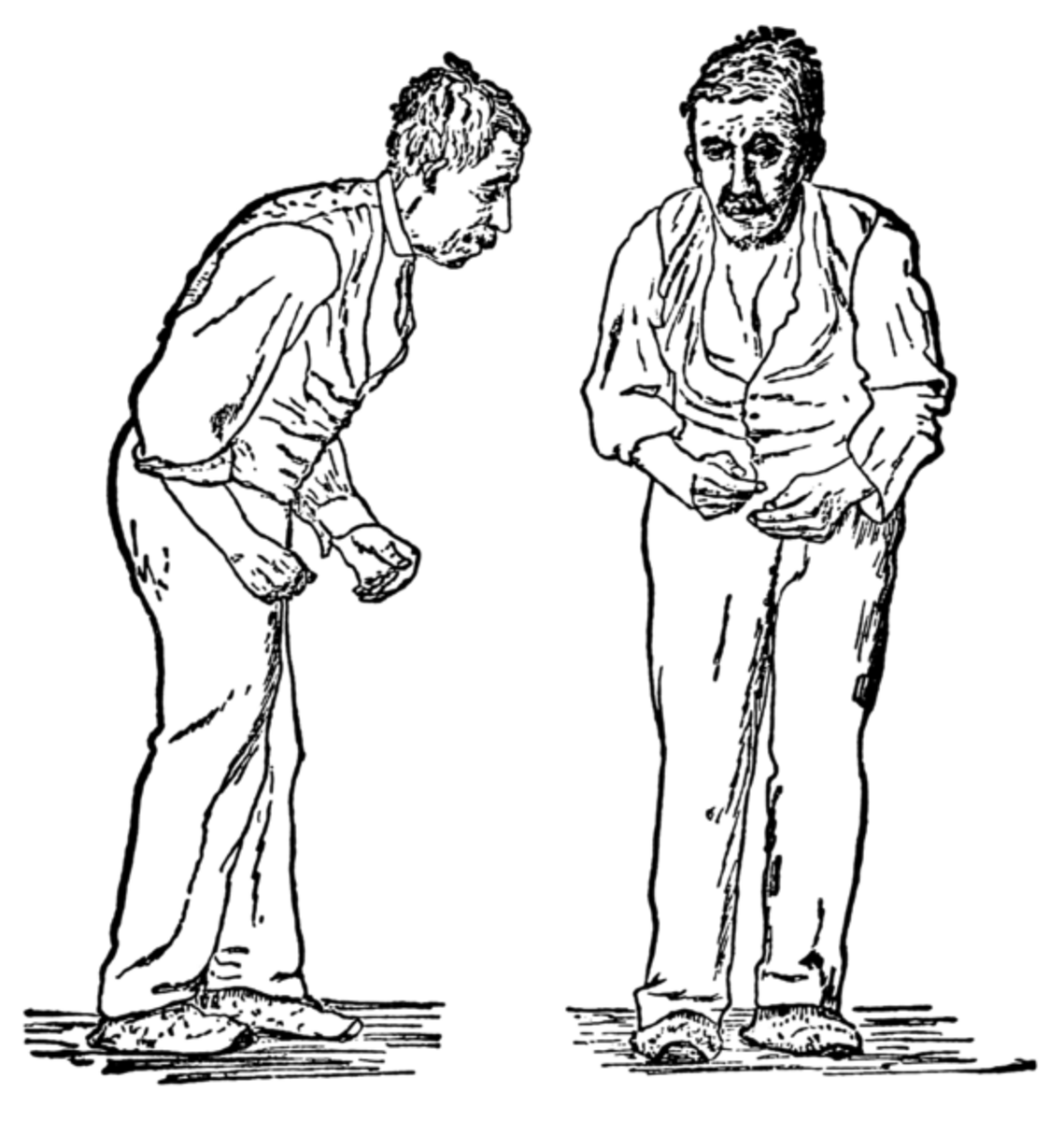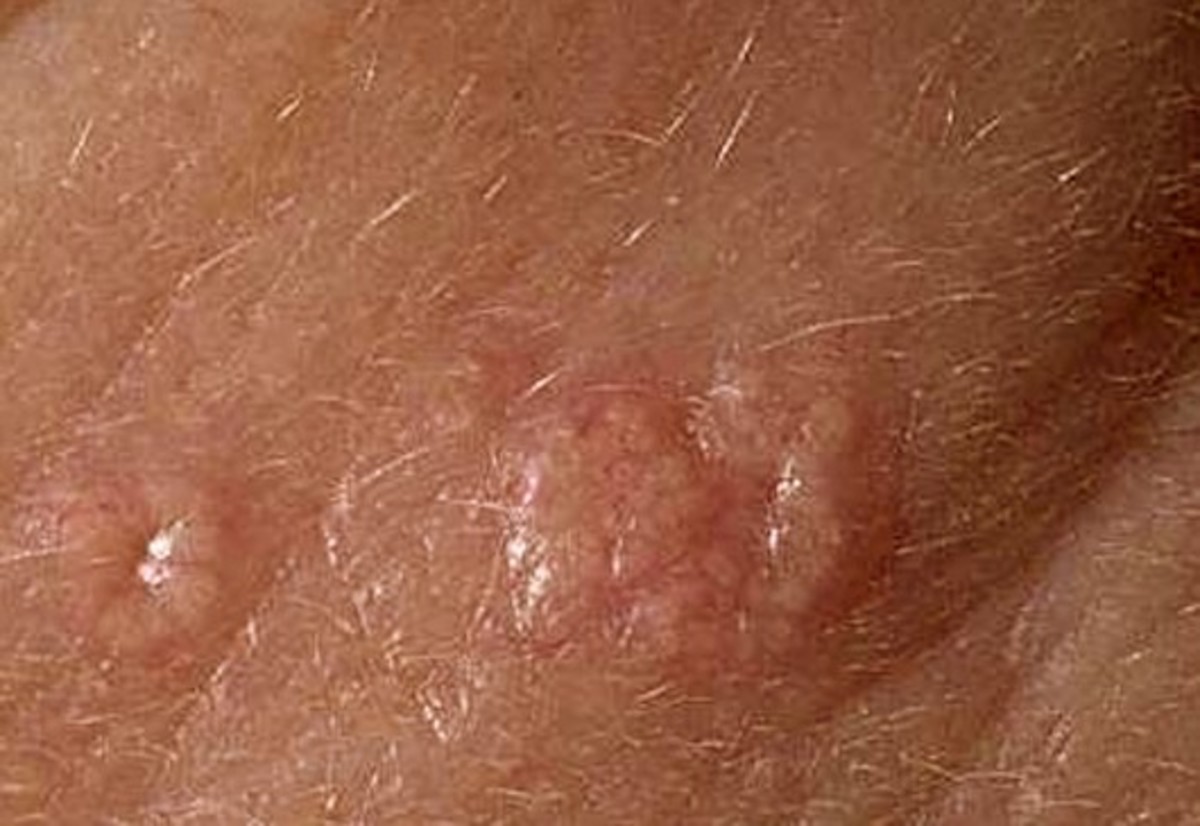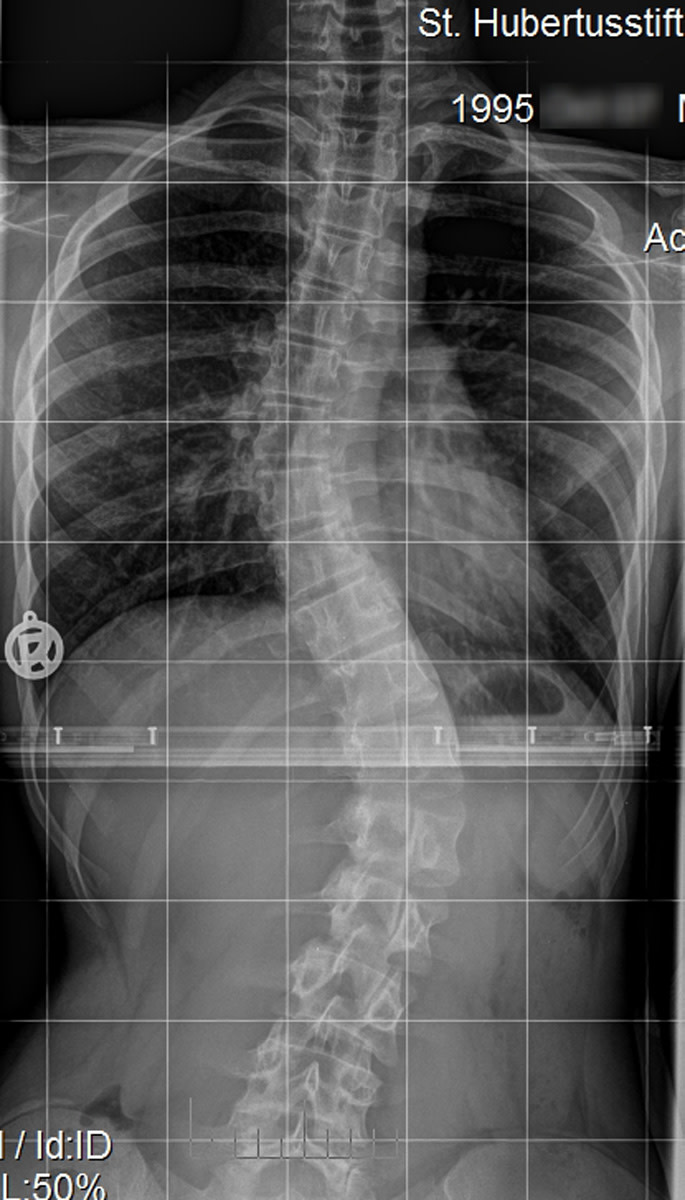Link Between Helicobacter Pylori and Parkinson's Disease
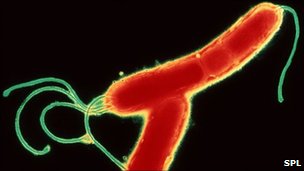
US scientists have discovered a link between Helicobacter pylori and Parkinson's Disease.
Middle-aged laboratory mice were infected with the bacterium H.Pylori and they went on to develop symptoms similar to Parkinson's.
This exciting breakthrough could herald a new era of treatment of Parkinson's Disease which blights so many lives, similar to how the discovery of Helicobacter Pylori changed the lives of so many suffering from stomach ulcers.
The problem, however, with Parkinson's, is that by the time a patient is showing symptoms, neurons have been irreversibly damaged and cannot be repaired.
What are Neurons?
Neurons are nerve cells. We depend on neurons to transmit signals between the brain and the body.
If you want to pick up that pencil sitting in front of you, neurons send signals to your arms and hands, and you reach out and pick up the pencil.
People with neuron damage may find picking up the pencil an impossibility, even thought they want to.
H. Pylori and Parkinson's Disease - What the experts say
It is unclear at the moment how scientists can use this new discovery for the benefit of sufferers of Parkinson's Disease, but Dr Traci Testerman of the Louisiana State University Health Sciences Center is quoted as telling the BBC:
"Our findings suggest that H. pylori infection could play a significant role in the development of Parkinson's disease in humans.The results were far more dramatic in aged mice than in young mice, demonstrating that normal ageing increases susceptibility to Parkinsonian changes in mice, as is seen in humans".
She went on to elaborate "H. pylori eradication in late stage Parkinson's disease is unlikely to result in significant improvement.
"Certain neurons are killed before symptoms begin, and more are killed as the disease progresses. Those neurons will not grow back."
Meanwhile Dr. Kieren Breen, the director of research at Parkinson's Disease UK is reported to have told the BBC that while there is evidence that the presence of H.pylori can actually prevent the body's absorption of Levodopa, which is the main drug used to treat Parkinson's, there is no evidence to suggest that those people with H.pylori will go on to develop Parkinson's.
He went on to add: "The current study is interesting and suggests that the bacteria may release a toxin that could kill nerve cells.
However, the results should be treated with caution. The research was carried out in mice that were infected with relatively high doses of the bacterium or its extract.
While they developed movement problems, we don't know whether this was actually due to the death of nerve cells. Further research needs to be carried out".
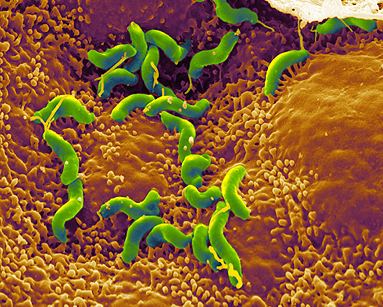
What is Helicobacter Pylori?
Helicobacter pylori, often referrred to as simply H.pylori, is a bacterium that lives in the lower part of the stomach in humans. It does not exist in any other organism in the world. Many of us are infected with it from birth, and carry it in our stomachs throughout life with no apparent complication.
First discovered in 1982, by two Australian doctors, Robert Warren and Barry Marshall, the noted presence of H. pylori heralded a major breakthrough in the treatment of peptic and duodenal ulcers.
Up until then, those ulcers were responsible for years of misery for sufferers and the only treatment recommended was to take acid-inhibiting drugs to protect the stomach lining, and a change of diet and lifestyle.
Despite everything, those ulcers kept flaring up, bleeding and hospitalizing many patients, resulting in many cases in an untimely early death as well as precipitating stomach cancer, heart disease and many other inflammatory diseases such as osteoarthritis and Crohn's disease.
Like all bacteria, H.pylori can be eradicated with a simple course of antibiotics.
The breakthrough made by those two doctors that re-classified peptic ulcers as an infectious disease has revolutionized medicine, resulting in both doctors receiving the Nobel Prize for Medicine in 2005.
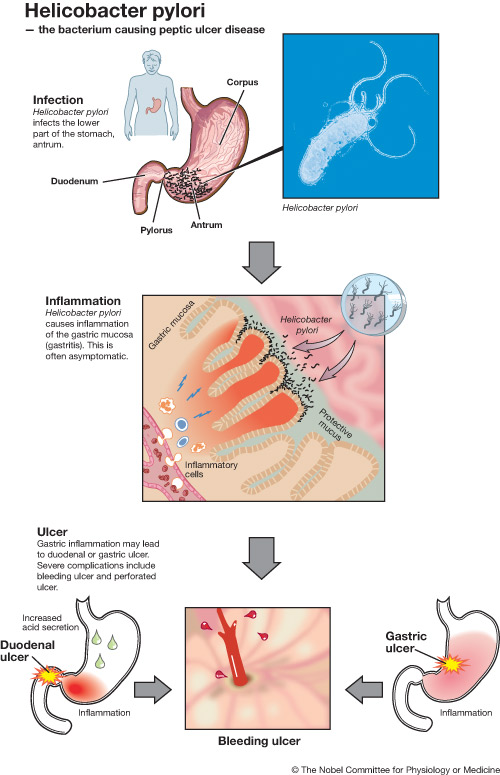
What is Parkinson's Disease?
Parkinson's Disease is a degenerative disease of the nervous system characterized by shaking, rigidity, slowness of movement and difficulty walking.
It can strike any (adult) age-group, but tends to affect those over 50 more often.
Parkinson's occurs as a result of the death of dopamine cells in the brain, and the only treatment so far has been to replace that dopamine with the drug Levadopa and similar.
There is no cure, and the disease steadily progresses until the patient can no longer walk and loses cognitive power (the ability to recognise people and things around them).
The number of people diagnosed with Parkinson's Disease has been steadily increasing year in year out, and several famous people have been struck down with this horrific disease, notably among them Hollywood actor Michael J Foxand boxer Muhammad Ali.

Possible new cures soon with future research?
It is the link between dopamine and H. pylori which is exciting scientists.
Obviously the laboratory mice suffered a decrease or death of the dopamine cells in their brains with the introduction of H. pylori into their bodies - and remember as said above, H. pylori is a uniquely human bacteria - it does not exist elsewhere, so rats would have no immunity.
If H. pylori is inhibiting the absorption of Levadopa in patients with Parkinson's Disease, then a course of antibiotics should kill off the bacteria allowing those patients to live a normal life, with continuing treatment.
This breakthrough, discovering a link between Parkinson's Disease and Helicobacter pylori is tremendously exciting and we may indeed find some new wonder cures coming out inside the next 10 years, with further research.


